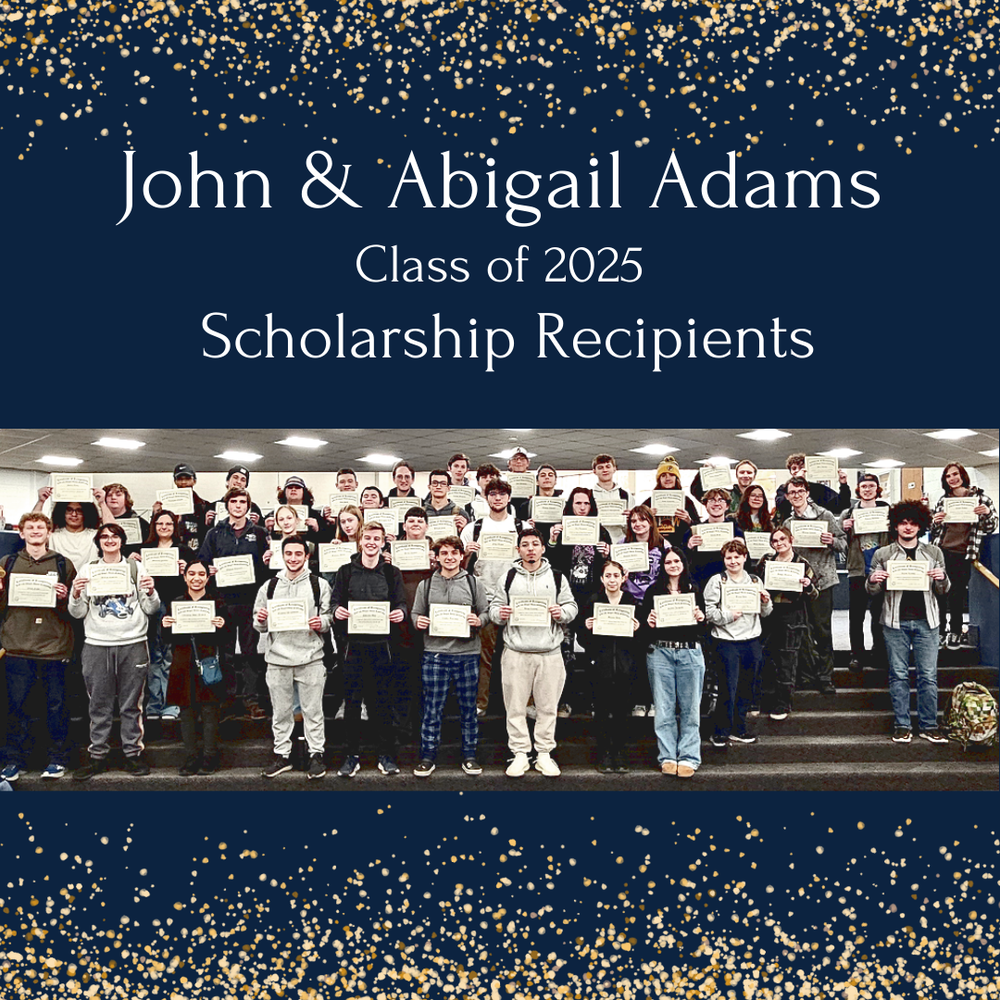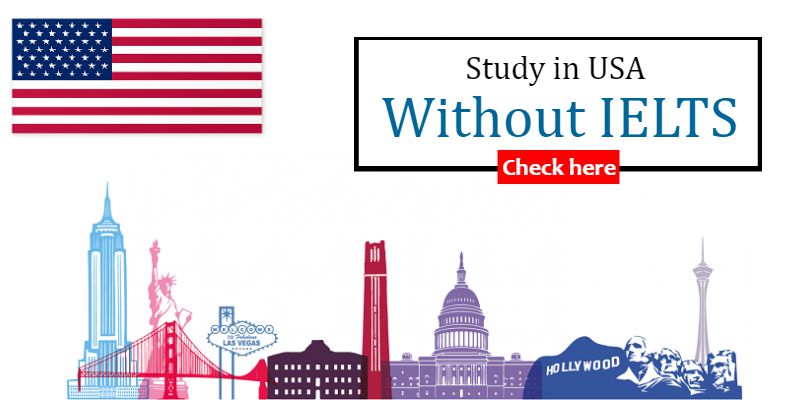John and Abigail Adams Scholarship: A Complete Guide for Massachusetts Students
If you’re a high-achieving high school student in Massachusetts, the John and Abigail Adams Scholarship could be your golden ticket to affordable college education. This prestigious merit-based scholarship provides tuition waivers at Massachusetts public colleges and universities, making it one of the most valuable awards for in-state students.
In this blog post, we’ll cover everything you need to know about the John and Abigail Adams Scholarship, including eligibility, benefits, application process, and official resources to get you started.
Overview, Award Amount & How to Qualify
The John and Abigail Adams Scholarship is one of Massachusetts’ most prestigious merit-based scholarships. Named after two of the state’s most iconic historical figures—President John Adams and First Lady Abigail Adams—this scholarship recognizes academic excellence among Massachusetts high school students. The award provides a tuition credit toward undergraduate education at a Massachusetts state college or university, making it a highly sought-after opportunity for students planning to stay in-state for their college education.
In this post, we’ll break down everything you need to know about the John and Abigail Adams Scholarship, including eligibility, award amounts, benefits, and how to maintain the scholarship throughout your college years.
What Is the John and Abigail Adams Scholarship?
The John and Abigail Adams Scholarship is a merit-based scholarship awarded by the Massachusetts Department of Elementary and Secondary Education (DESE). Named after two prominent historical figures from Massachusetts, the scholarship honors academic excellence and encourages top-performing students to pursue higher education in-state.
Key Benefits:
-
Free tuition at any Massachusetts state university or community college
-
Valid for up to eight semesters (four years of undergraduate study)
-
No separate application required – students are automatically considered
Award Amount: What Does It Actually Cover?
The John and Abigail Adams Scholarship provides a tuition waiver, not a full scholarship. That means it covers only the tuition portion of college costs at participating Massachusetts public institutions. It does not cover fees, books, room and board, or other expenses.
Here’s a general idea of tuition values at Massachusetts public colleges and universities (as of 2025):
| Institution Type | Estimated Annual Tuition Covered |
|---|---|
| Community Colleges | $600 – $1,000 |
| State Universities | $1,500 – $2,500 |
| University of Massachusetts (UMass) | $1,700 – $2,700 |
Eligibility Criteria
To qualify for the John and Abigail Adams Scholarship, students must meet the following criteria:
-
Be a Massachusetts resident.
-
Score in the top 25% of their school district on the 10th-grade MCAS (Massachusetts Comprehensive Assessment System) tests in English Language Arts, Mathematics, or STE (Science and Technology/Engineering).
-
Earn a minimum score of Advanced in one subject area and Proficient or higher in the others.
-
Be a graduate of a Massachusetts public high school.
-
Enroll full-time in a Massachusetts public higher education institution.
Students do not need to apply for the scholarship. Those who qualify are notified by their school and receive an award letter from the Massachusetts Department of Elementary and Secondary Education (DESE) in the fall of their senior year.
How to Apply
There is no application process for the John and Abigail Adams Scholarship. Students that are eligible for the John and Abigail Adams Scholarship will be notified in the fall of their senior year in high school.
What the Scholarship Covers
The scholarship covers tuition only. It’s important to note that fees, books, room and board, and other expenses are not covered. Still, the value of the tuition waiver can be substantial, especially at four-year public colleges in Massachusetts.
Participating Institutions
The scholarship is valid at any Massachusetts public institution of higher education, including:
-
University of Massachusetts system (UMass Amherst, Boston, Dartmouth, Lowell)
-
Massachusetts State Universities (e.g., Bridgewater State, Salem State, Worcester State)
-
Massachusetts Community Colleges
How to Use the Scholarship
Eligible students do not need to apply separately. The Massachusetts DESE automatically notifies qualifying students in the fall of their senior year of high school. Here’s how to claim the scholarship:
-
Receive your award letter from DESE (usually sent through your high school).
-
Submit the letter to the financial aid office of the public college or university you plan to attend.
-
Maintain a minimum 3.0 GPA during college to remain eligible.
-
Enroll full-time (at least 12 credits per semester).
Who Is Eligible?
To be eligible for the John and Abigail Adams Scholarship, a student in the class of 2015 or earlier must
- Score in the Advanced category on either the Mathematics or the English Language Arts section of the grade 10 MCAS test and score in the Proficient or Advanced category on the second subject (Mathematics or English Language Arts).
- Have a combined MCAS score on these assessments that ranks in the top 25% in their school district.
Students in the class of 2016 or after must
- Score in the Advanced category on one of three high school state assessment tests in English Language Arts, Mathematics, or STE (Biology, Chemistry, Introductory Physics or Technology/Engineering)
- Score in the Proficient or Advanced category on the remaining two high school state assessment tests
- Have a combined MCAS score on these assessments that ranks in the top 25% in their school district.
In addition, all students must meet the following requirements:
- United States Citizen or a non-citizen authorized by the federal government to live and work in the United States on a temporary or permanent basis.
- Be enrolled full time (at least 12 credits or its equivalent) in a certificate, associate’s or bachelor’s degree program at an eligible institution.
- Not have received a prior bachelor’s degree or its equivalent.
- Complete the Free Application for Federal Student Aid (FAFSA).
- Must be in compliance with applicable law regarding Selective Service Registration.
- Must not be in default with applicable law regarding any federal or state student education loans for attendance at any institution or owe a refund for any previous financial aid received.
To continue receiving the scholarship each year, recipients must:
-
Be enrolled full-time at a Massachusetts public college or university
-
Maintain a cumulative GPA of 3.0 or higher
-
Complete the FAFSA annually (to verify continued eligibility, even though the award is merit-based)
If a student fails to meet these requirements, the scholarship may be revoked for future semesters.
Pros and Cons of the Scholarship
Pros:
-
No separate application required.
-
Recognizes high academic performance.
-
Reduces tuition costs significantly.
Cons:
-
Does not cover fees or living expenses.
-
Only valid at Massachusetts public institutions.
-
Requires continued academic performance in college.
Tuition Reimbursement (Post-Graduation): What You Need to Know
Tuition reimbursement is a benefit some employers offer where they pay for a portion or all of your college tuition after you’ve graduated and started working with them. It’s a fantastic way to invest in higher education without going into debt.
Who Offers Tuition Reimbursement?
-
Private sector companies (e.g., Amazon, Walmart, Starbucks, Deloitte)
-
Government agencies
-
Healthcare institutions
Common Requirements
-
Must be employed full-time or part-time for a specified duration (usually 6–12 months)
-
Courses or degree programs must be job-related
-
Maintain a minimum grade (e.g., B or higher)
Average Reimbursement Amount
Employers typically offer:
-
Up to $5,250 annually (tax-free under IRS regulations)
-
Some high-skill employers may cover 100% of tuition for selected degrees
How to Find a Tuition Reimbursement Program
-
Check your HR or employee benefits portal
-
Ask during job interviews or onboarding
-
Search company websites for “Education Assistance” or “Tuition Reimbursement”
What Are Tuition Waivers?
Tuition waivers are reductions or eliminations of tuition costs, often offered by government entities or educational institutions based on specific eligibility categories like military service, disability, foster care status, or employee affiliation.
Common Categories of Tuition Waivers
-
Veterans and active-duty military
-
Children and spouses of first responders
-
Foster children or adopted children
-
State employees and their dependents
-
Senior citizens
Massachusetts Tuition Waiver Programs Include:
-
Categorical Tuition Waiver
-
Senior Citizen Waiver
-
Valedictorian Program Waiver
-
Foster Child Tuition Waiver
-
Armed Forces Tuition Waiver
How to Apply
-
Contact the financial aid office at your public college or university
-
Provide documentation supporting your eligibility (e.g., military ID, foster care status letter)
-
Submit your FAFSA and any additional state-required forms
Official Website:
Explore full tuition waiver options at the Massachusetts Office of Student Financial Assistance
Comparison Chart: Adams Scholarship vs. Reimbursement vs. Waivers
| Feature | John & Abigail Adams Scholarship | Tuition Reimbursement | Tuition Waivers |
|---|---|---|---|
| Who Offers It | State of Massachusetts | Employers | State/Institution |
| When Used | During college | After graduation | During college |
| Eligibility | Based on MCAS scores | Based on employment | Based on category (e.g., military) |
| Renewal | Up to 8 semesters | Annually (varies by employer) | Varies |
| Coverage | Tuition only | Partial/full tuition | Full/partial tuition |
Tips to Maximize Your Education Benefits
-
Combine scholarships + waivers + reimbursement where possible
-
Choose a Massachusetts public institution to fully benefit from the Adams Scholarship
-
Apply early and keep documentation for eligibility proofs
-
Maintain strong academic performance and GPA to retain renewable aid
-
Consider employers with strong education benefits when job hunting
FAQs
Does the scholarship cover out-of-state schools?
No. It only applies to Massachusetts public colleges and universities.
Do I need to apply for the scholarship?
No. Eligibility is automatic based on MCAS performance. Students are notified by DESE.
Can I combine this scholarship with other financial aid?
Yes, but the Adams Scholarship only covers tuition, so you can still apply for other grants and scholarships to cover remaining costs.
Why This Scholarship Matters
For Massachusetts students planning to attend college in-state, the John and Abigail Adams Scholarship is a fantastic way to reduce the cost of higher education. With no application process and guaranteed tuition coverage for high performers, it rewards academic excellence while encouraging students to remain within the state’s public higher education system.
Official Website
For the most accurate and updated information, visit the official Massachusetts Department of Higher Education page:
https://www.mass.gov/service-details/john-and-abigail-adams-scholarship
Final Thoughts
If you’re a high school student in Massachusetts aiming for top MCAS scores, the John and Abigail Adams Scholarship is well worth the effort. It’s a straightforward, no-hassle scholarship that can save you thousands of dollars in tuition—while honoring your academic achievements.
Start preparing now, aim high on your MCAS exams, and let this scholarship lighten your financial burden as you step into higher education.
The John and Abigail Adams Scholarship is an excellent way for academically high-performing Massachusetts students to reduce their college tuition costs and receive recognition for their hard work. While it doesn’t cover all costs, combining it with other financial aid opportunities like FAFSA grants and institutional aid can significantly reduce the total cost of a college education in Massachusetts.
If you’re a Massachusetts student scoring in the top of your MCAS, keep an eye out for that award letter in the fall of senior year—it could be your ticket to a more affordable college education.
Additional Resources:
https://www.mass.gov/doc/john-and-abigail-adams-scholarship-guidelines/download
https://www.mass.gov/doc/cash-grant-procedures-and-guidelines-0/download
https://www.mass.gov/doc/department-of-children-and-families-student-eligibility-checklist/download
https://www.mass.gov/doc/first-time-applicant-public-service-grant-application/download
https://www.irs.gov/pub/irs-pdf/p970.pdf





